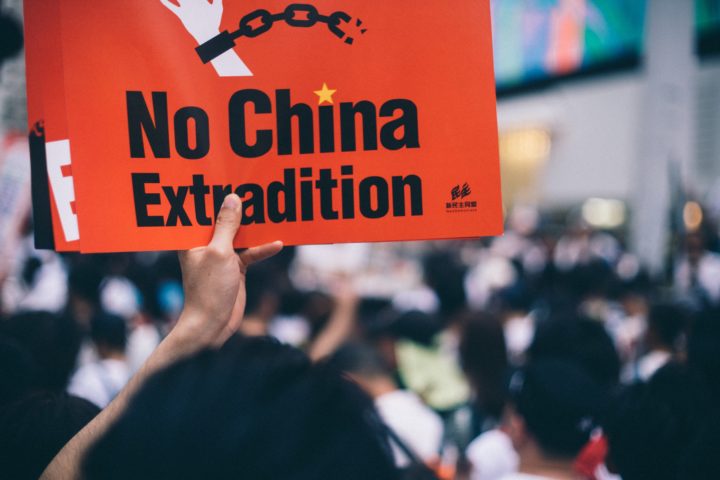Hong Kong is facing its worst political crisis since the territory negotiated its independence from Britain in 1997.
On Sunday, hundreds of thousands of citizens marched in protest of proposed changes to Hong Kong’s extradition law that would allow the government to extradite people to mainland China. The protest turned violent, with Hong Kong police firing rubber-coated bullets, spraying water cannons, and hurling canisters of tear gas at demonstrators who set up metal barricades with umbrellas to protect themselves from the fumes. A scheduled Wednesday debate at the government headquarters was canceled when tens of thousands of protesters took to the streets and forced roads closed.
Hong Kong Chief Executive Carrie Lam criticized the Sunday demonstrations as a “blatant, organized riot.” Amnesty International condemned the excessive use of force shown by
Lawmakers are seeking to expand Hong Kong’s extradition policy to include China and Taiwan, subjecting Hong Kong residents to a Chinese justice system that is known for its arbitrary use of detention and torture. Opponents worry that the proposed amendments will threaten Hong Kong’s already fragile semi-autonomous status and that pro-Beijing politicians will use the law to target journalists, tourists, and dissident political figures. Hong Kong lawmakers defend their proposed changes, claiming that the current version allows Hong Kong to be a refuge for wanted criminals.
Despite current unrest, most of Hong Kong remains safe for travelers. Travelers are advised to take appropriate precautions and plan for serious transit delays. Admiralty, Central and Wan Chai commercial districts should be avoided while the protest is active.
A reporter for South China Morning Post told The Points Guy that, “Despite what is going on and seen on TV, the majority of Hong Kong continues as normal… but with roads closed sporadically, it’s best to stick to the metro… No one knows how long the protests will last, to what size or intensity. Daily life will go on in Hong Kong regardless.”
